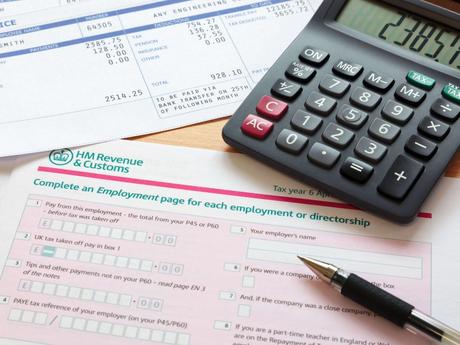There's a lot of things to remember when you are self-employed, or you run a business. Tax returns are always there, lurking in the background but it is easy to forget the exact deadlines. Sadly, one missed deadline can cost you £100 minimum in penalties. However, under a new system announced by the Chancellor, you will no longer receive a £100 fine for filing a late tax return.
Points based system
In the Autumn Budget in 2017, Philip Hammond announced that HMRC would start using a new system that would be lenient towards taxpayers and details have now followed that show how this new approach will work.
Under the new system, taxpayers who are late with a return would be scored on a points-based system a little like getting points on your driving license. Every time you are late with a return, a point would be added to your record and when you reach a certain number, you will get a penalty.
Thresholds will be set by how often you are required to submit your tax returns to HMRC - so if you have to set them more often, you will get more flexibility. But if you only have to send them once a year, then you might only be able to get two points before you get a fine. The system laid out includes:
- Annually submission penalty threshold - 2 points - resets after two submissions
- Quarterly submission penalty threshold - 4 points - resets after four submissions
- Monthly submission penalty threshold - 5 points - resets after six submissions
How will the system work?
Every time you miss a deadline, you will earn one point. However, after a period of time where you don't miss any deadlines known as 'good compliance', you will see that your points will re-set to zero. Points also expire automatically after 24 months though not for anyone who has already earned a penalty.
It is worth noting that the proposal will apply 'per tax' so if you have to pay different types of tax, then points will apply for each type of tax that you are late in paying. So, if you are late with three types of tax, you can get three lots of points but the points for each type of tax will be kept separate.
According to the government, HMRC will be allowed some discretion over awarding the points should someone have a reasonable excuse. There is also the option to appeal both points and penalties if you feel you have a valid case.
When will the system start?
The changes were announced in the 2017 Autumn Budget and were followed by a consultation period where they were tested, and people could give their opinion. This has now ended, and legislation will be drafted and consulted upon, due to happen by summer 2018.
Following this, the first people to see the new system will likely be those paying VAT, and this will start from 2020.
Late fees for 2016-17
This means if you are completing a tax return for 2016-17, you should still be aware of the potential penalties that HMRC have in place. The old penalty system will remain in place for this tax year, so you need to get self-assessment tax returns in by 31 st January online to avoid them.
Even if your return arrives the day after the deadline, you could still face a £100 fine. This fine also increases depending on how late you are and in extreme cases could be as much as 100% of the tax payable meaning your bill would double.
- 1 day late - £100 fine
- Up to 3 months late - extra £10 a day capped at 90 days on top of £100 fine to a maximum of £1000
- 6 months late - £300 or 5% of the tax due, whichever is higher added to above penalties
- 12 months late - £300 fine or 5% of the tax due on top of above penalty and potentially up to 100% of your tax bill
For the 2016-16 tax year, HMRC reported that 840,000 people missed the final deadline with a massive 33,000 filing in the final hour of the day.
Do I need to file a return?
There are 11 million people registered for self-assessment tax returns and these all need to return something to HMRC, even if you didn't make enough money to have to pay either tax or national insurance.
It is also worth remembering that if you have paid tax based on earnings you didn't make, there are situations where you could be due to a refund. Once you have submitted your returns, you can call the tax refund number to find out if you are due anything. Never responded to text or email messages about a tax refund as these will likely be fraudulent - HMRC never communicates this way.


